GROUP MEMBERS
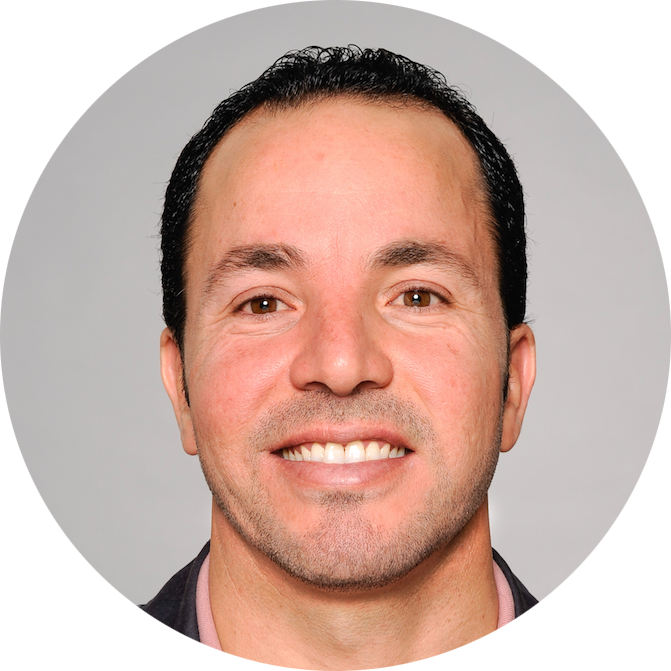
Prof. Mustapha Taibi
(Western Sydney University, Australia)
Mustapha Taibi is the founding leader of the Group. He is a Professor in Interpreting and Translation at Western Sydney University and the Editor-in-Chief of the journal Translation & Interpreting. He has published widely, especially on community interpreting and translation.
His publications include:
- Public Service Translation, published in The Oxford Handbook of Translation Studies (edited by Malmkjaer & Windle, Oxford University Press);
- Tarjamat Al-Khidmat Al-Ammah, a book in Arabic about Community Translation and Interpreting (2011, Rabat: Dar-Assalam);
- Community Translation (co-authored with Uldis Ozolins, 2016, Bloomsbury);
- New Insights into Arabic Translation and Interpreting (2016, Multilingual Matters);
- Translating for the Community (2018, Multilingual Matters).
- Translating Cultures (co-authored with David Katan, 2021, Routledge)
- Translation and Community (2025, Routledge)
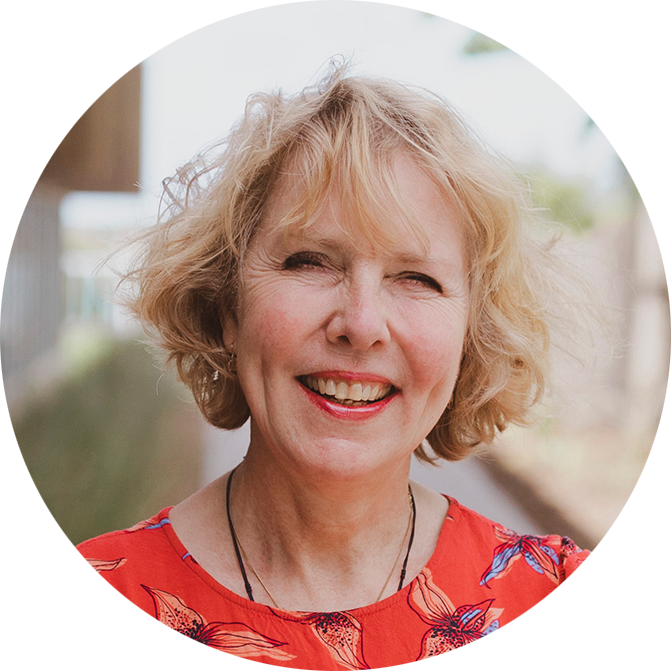
Prof. Ineke Crezee
(Auckland University of Technology, New Zealand)
Prof. Ineke Crezee (Auckland University of Technology, New Zealand): Ineke holds degrees in Translation Studies and English from the University of Amsterdam and VU University Amsterdam respectively, as well as a PhD in Applied Language Studies from the Auckland University of Technology (AUT). In addition, she trained and worked as a Registered Nurse in a range of healthcare settings.
In 2014 she was awarded a Fulbright New Zealand Scholar Award (Public Health) and used it to travel to the United States to compare the roles of bilingual Patient Navigators and medical interpreters at Seattle Children's Hospital.
Ineke has been involved in interpreter education since 1991 when she helped develop the first healthcare interpreting course in New Zealand, in response to the recommendations of a government committee of inquiry following a series of medical misadventures in the public health system.
Ineke has been working as a freelance translator for many years, and as such has translated various (detective) novels and textbooks. She was involved in the Dutch translation of the Nursing Outcomes Classification and similar textbooks.
Ineke has published several textbooks, including Introduction to healthcare for interpreters and translators (John Benjamins, 2013). An adaptation for Spanish-speaking interpreters and translators appeared in 2015, followed by Japanese, Chinese, Korean, Arabic and Russian versions, while the Turkish iteration will be published towards the end of 2022. Ineke has published widely on both community interpreting and translation, and interpreter and translator education.
Ineke is co-editor of Translation and Interpreting, and as such enjoys reading the latest studies. She herself is currently involved in several research projects, involving bilingual Patient Navigators, shared pre-professional learning involving student interpreters and Speech Language Therapists, and the use of audiovisual clips and reflective blogs in health and legal interpreter education.

Prof. Eleanor Cornelius
(University of Johannesburg, South Africa)
Eleanor Cornelius is an associate professor and head of the Department of Linguistics at the University of Johannesburg (South Africa). She serves on the Council of the International Federation of Translators (FIT). In addition, she is the vice-chair of the South African Translators' Institute (SATI), a SATI accredited simultaneous interpreter in two directions, a member of the Linguistic Society of South Africa (LSSA) and a member of the South African Applied Linguistic Association (SAALA). Eleanor is also a founding member of ATSA (African Translation Studies Association), which was established in 2016. She is also the liaison between DFKI (a Germany-based company involved in research on MT and AI) and FIT on the QT21 project. Her research interests include (legal) translation and translation competence, interpreting, plain language, the language of the law and, more recently, the impact of MT on the translation profession. In her research she focuses on the accessibility, readability and comprehensibility of public texts that are intended for lay audiences. Recent publications include:
- Cornelius, E. 2016. “Exploring and developing Legal Translation Competence: Learning from the Old Dogs”. In: Thelen, M., G-W. van Egdom, D. Verbeeck, L. Bogucki and B. Lewandowska-Tomaszczyk (eds.), Translation and Meaning. New Series, Vol. 1. Frankfurt a/Main: Peter Lang, pp. 193-206.
- Cornelius, E. 2015. Defining 'plain language' in contemporary South Africa. Stellenbosch Papers in Linguistics, 44: 1-18.
- Cornelius, E. 2012. The spotlight on.... legal translation. Muratho, 12(1): 13-17.
- Cornelius, E. 2011. The curious case of legal translation. Literator, 32(1): 121-143.
- Cornelius, E. 2011. The consumer as reader: Empowerment through language. Muratho, 11(1): 9-13."
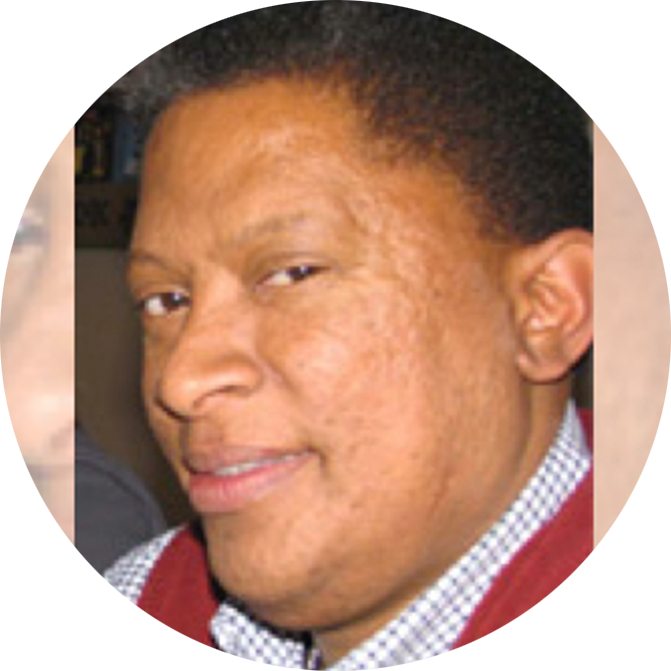
Associate Prof. Harold Lesch
(Stellenbosch University, South Africa)
Harold M. Lesch is Associate Professor and coordinator of the postgraduate diploma in translation and interpreting at Stellenbosch University, South Africa. He holds a D.Litt. qualification in translation. With a dissertation on community translation in South Africa, his research focuses on both translation and interpreting. He has published a number of essays, monographs and delivered papers, nationally as well as internationally in his field of expertise. Furthermore, he has experience as a simultaneous interpreter at among others the national parliament, the Western Cape Legislature and as a whisper interpreter. He also established a training and research program in interpreting and played a leading role in establishing the interpreting service on the campus.
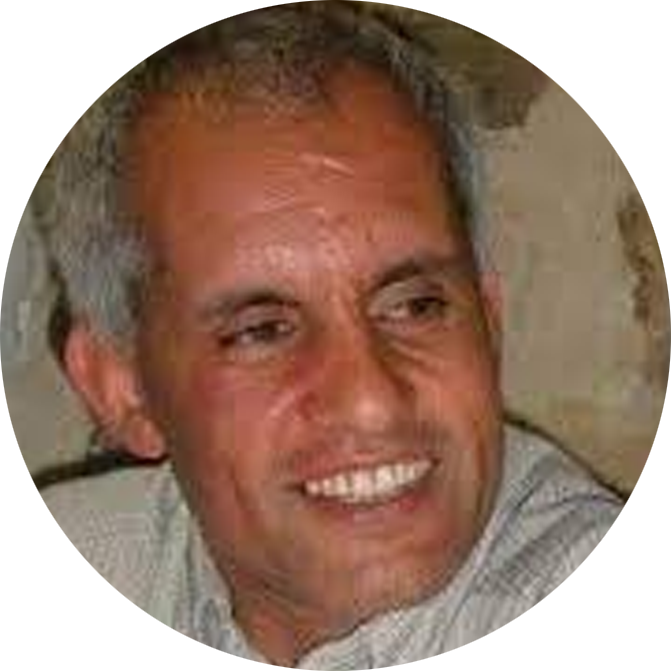
Dr. Mohamed El-Madkouri Maataoui
(Universidad Autonoma de Madrid, Spain)
Mohamed El-Madkouri Maataoui obtained his first PhD in linguistics from Universidad Autónoma (Madrid) in 1993, with a thesis on Theory of Translation. In 2005 he was awarded a second PhD in philology from Universidad Complutense (Madrid), with a thesis on The Image of the Other: Arabs in the Spanish Press (with a special award). He is currently a senior lecturer in translation and interpreting in the Department of Linguistics, Universidad Autónoma de Madrid. He teaches graduate courses on translation in Spain and Italy (La Sapienza), with a special interest in legal translation and migration. He has been a visiting professor in Italy, Sweden, Egypt, Bosnia and Morocco, among others.
He has published over a hundred journal papers and book chapters on Linguistics, Translation Studies and Critical Discourse Analysis. His publications include: The image of the Other in the Press (2009), Translation Studies and Translation (2012), School and Immigration: the Spanish Experience (2012), Cultural cognitivism and the translatability of the Arabic proverbs (2017), La precisión conceptual y terminológica en el ámbito policial y judicial: Traducción y transcripción (2019), Lingüística aplicada a la traducción (2020), Los límites de la traducibilidad lingüística: el caso de la traducción jurídica del árabe al español (2020). He is a member of several editorial boards and is involved in several research projects related to translation and international migration.
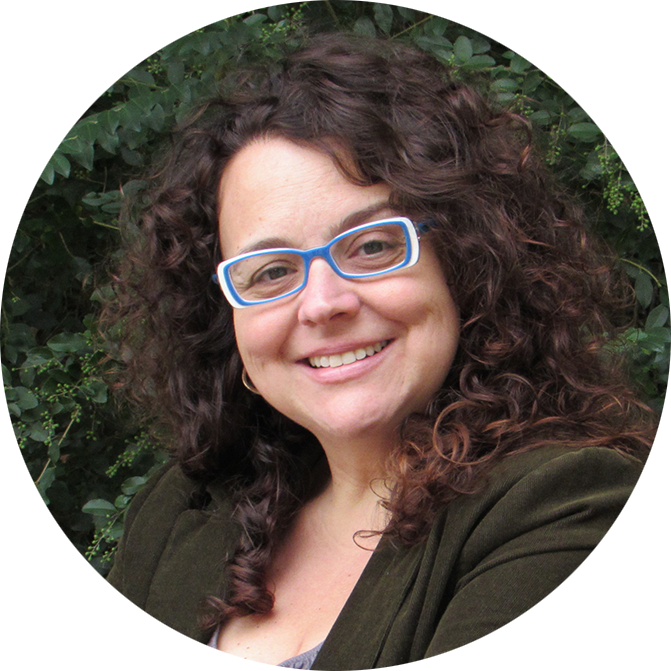
Associate Prof. Alicia Rueda-Acedo
(University of Texas at Arlington, USA)
Alicia Rueda-Acedo is an Associate Professor of Spanish and Translation at the University of Texas at Arlington, where she created and currently directs the Spanish Translation and Interpreting program. She received her Ph.D. in Hispanic Languages and Literatures from the University of California, Santa Barbara, and she holds a B.A. (Licenciatura) in Journalism from the University of Seville and a Licenciatura in Translation and Interpreting from the University of Granada. She is a Sworn Translator and Interpreter by the Spanish Ministry of Foreign Affairs. Alicia has worked as a freelance translator and as a journalist and translator trainee at the European Parliament in Brussels.
She is the Community Outreach Coordinator for the Department of Modern Languages and the recipient of the College of Liberal Arts Outstanding Teaching Award (Tenured Faculty) in 2014. She was inducted to the UTA Academy of Distinguished Teachers in 2015, and named Professor of the Year for 2016 on behalf of the Arlington Sunrise Rotary Club. In addition, she received a Certificate from the House of Representatives of the State of Texas in commemoration of receiving the Excellence in Higher Education Award from Arlington Sunrise Rotary.
Alicia has published widely on 20th and 21st century Transatlantic Literature, on topics such as literary journalism, women authors, and history. She is the author of Miradas Transatlánticas: el periodismo literario de Elena Poniatowska y Rosa Montero (Purdue University Press, 2012), and the co-editor of Independencias, Revoluciones y Revelaciones, doscientos años de literatura mexicana (University of Veracruz Press, 2010). Her new research interest combines the fields of community translation and service learning.
She started to incorporate community translation and service learning in her translation courses in 2011. Since then, her students have translated the 2011 Toys for Tots campaign, organized by the US Marine Corps and La sweet vida, a program to tackle type-2 diabetes led by Mission Arlington. Students in her classes collaborate with Proyecto Inmigrante, a non-profit organization for immigration counselling services, and the Arlington Public Library, where they translate and publish stories written by parents within a program called Stories to Our Children.

Brooke Townsley
(Middlesex University, UK)
Brooke Townsley (MA, RPSI, FCIOL) is senior lecturer in public service interpreting and translation in the School of Health and Education. He worked as a legal interpreter and translator with English and Turkish in the Criminal and Civil justice systems before joining the university in 2000, having lectured in legal interpreting and translation at Goldsmiths College and South Bank University. He has an MA from Edinburgh University in English Language and Literature and an MA from the School of Oriental and African Studies (Lon) in Modern Turkish Studies. Between 2006 and 2011, he was Chair of the National Register of Public Service Interpreters (NRPSI) and a member of the Council of the Chartered Institute of Linguists (CIOL), of which he was Vice Chair between 2009 and 2011. He is a Fellow of the Chartered Institute of Linguists and is External Examiner for the Leeds Metropolitan University Vocational Certificate in Interpreting.
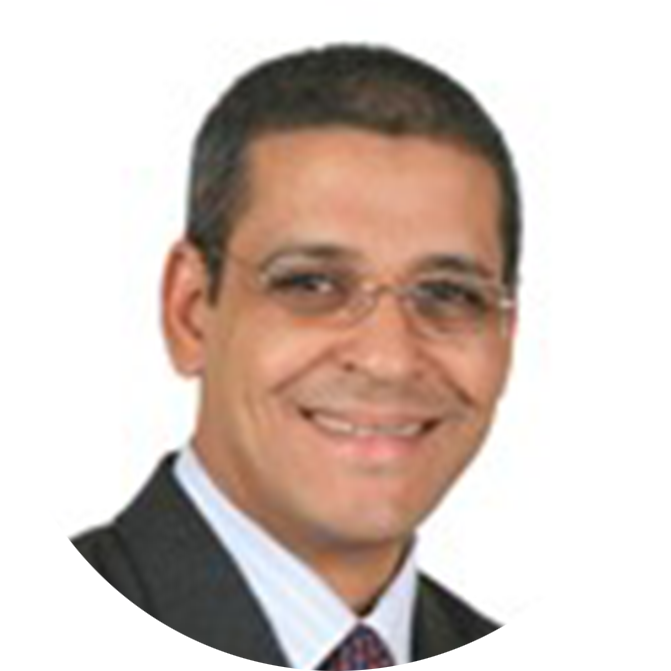
Prof. Said Faiq
(American University of Sharjah, UAE and Exeter University, UK)
Said M. Faiq, FRSA, is professor of intercultural studies and translation at the American University of Sharjah (UAE). With over thirty years in academia in Africa, the Middle East and Great Britain, including visiting professor at Exeter University, UK (2010-19), he is an established teacher and researcher in the interdisciplinary field of inter/cultural studies and translation. He has assumed a number of academic administrative positions, including head/chair of departments, director /coordinator of graduate and undergraduate programs. He has directed and examined graduate research/theses and has evaluated many promotion cases and academic programs (accreditation). He has served as consultant to private and public organizations for educational and related sectors, and has served on a number of academic editorial and consultancy boards/agencies. His research sits at the interface of intercultural communication, media, and representation as discourse –managing intercultural encounters in/of human interaction and behavior, linguistics, English academic writing, and innovation and entrepreneurship. His publications include Arabic translation across discourses (2019), Discourse in translation (2019), Agency and Patronage in Eastern Translatology (co-edited with Ahmed Ankit, 2015), Culguage in/of translation from Arabic (co-edited with Ovidi Carbonnel and Ali AlManaa, 2014), Beyond denotation in Arabic translation (co-edited with Allen Clark, 2010), Cultures in dialogue: A translational perspective (2010), Trans-lated: Translation and Cultural Manipulation (2007), Identity and representation in intercultural communication (2006), Cultural encounters in translation from Arabic (2004).
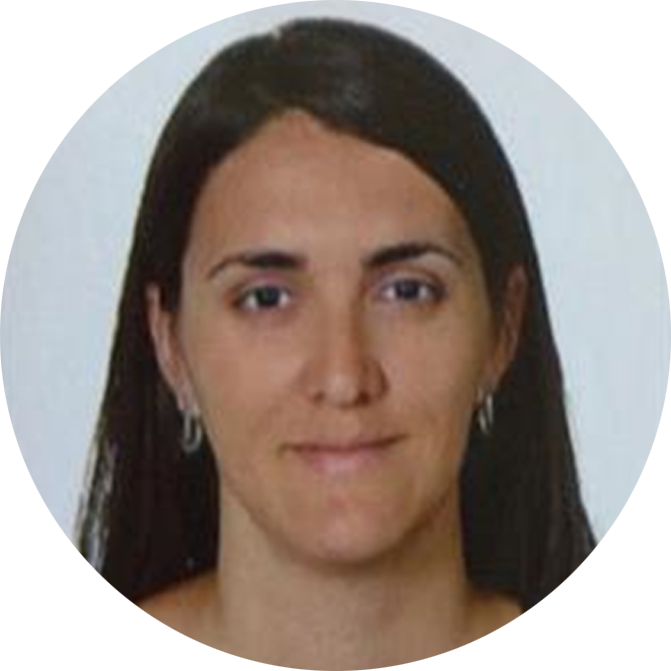
Associate Prof. Ana Gregorio-Cano
(University of Granada, Spain)
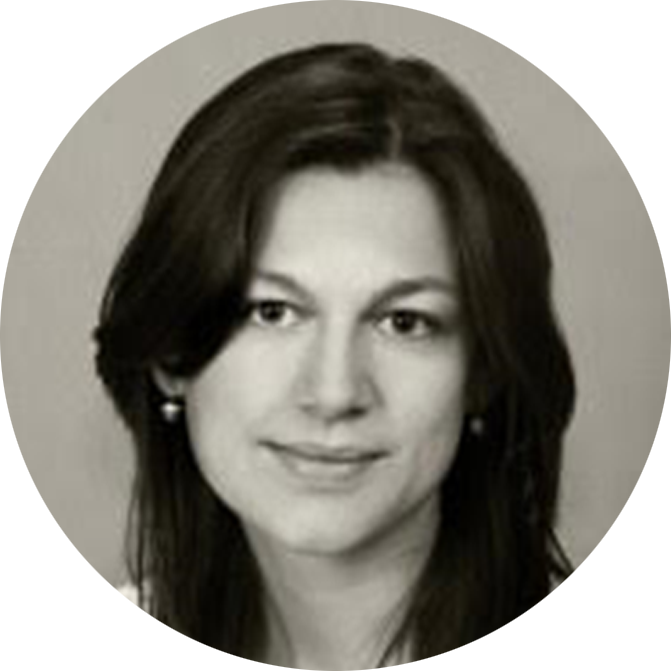
Assisstant Prof. Katarzyna Czarnocka (Katarzyna Stachowiak)
(University of Warsaw, Poland)
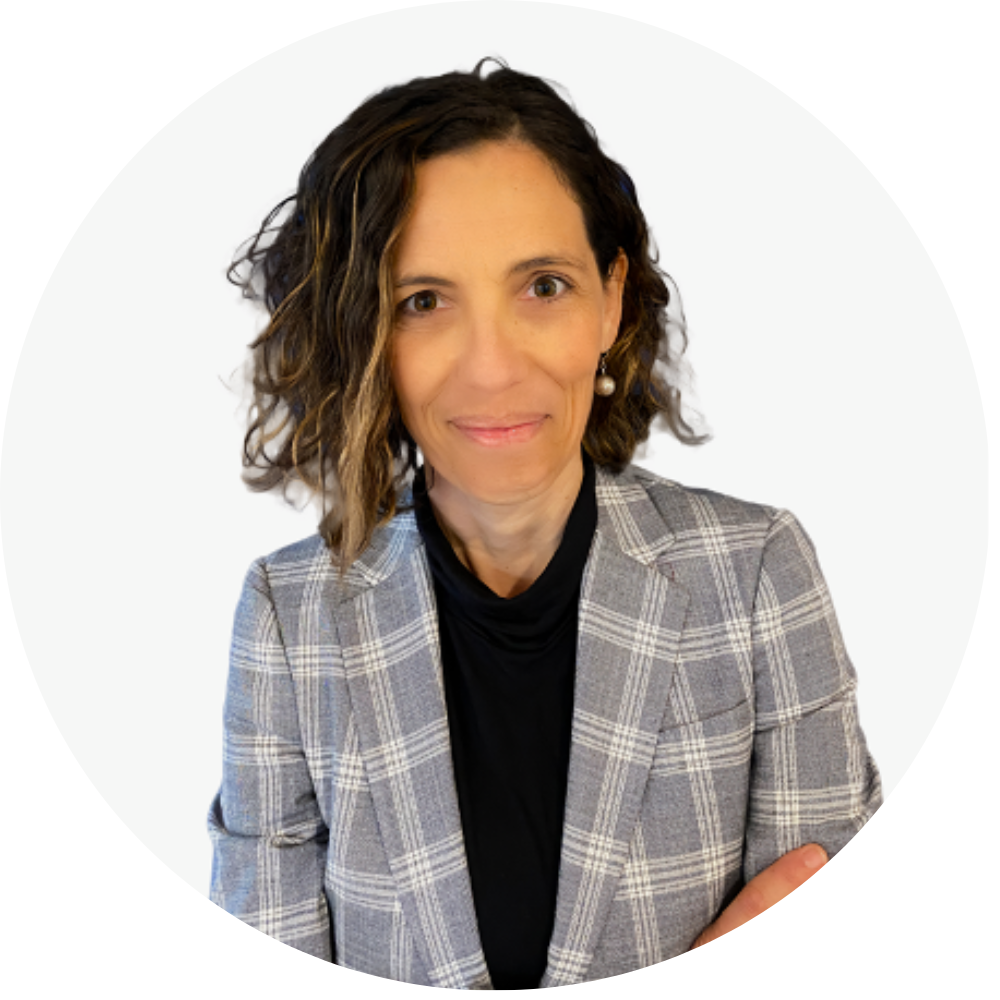
Associate Prof. Erika González
(RMIT University, Australia)
Erika Gonzalez is an Associate Professor at RMIT University in Melbourne, Australia. Erika has over two-decades experience teaching translation & interpreting in Spain and Australia. Currently she is the director of the Higher Education Translation & Interpreting programs at RMIT University, where community translation & interpreting are offered in more than a dozen languages. Erika is also a Senior Fellow of Advance HE, a UK based Higher Education organisation that promotes commitment to professionalism and provides recognition of practice, impact and leadership in learning and teaching. Erika is heavily involved with the industry and filled several positions at the Australian Institute of Interpreters and Translators (CPD national coordinator, Vice-President), until she was elected National President in 2019. At the end of her tenure, she was awarded the Paul Sinclair Award in recognition of her leadership and contribution to community engagement during the Covid-19 pandemic. She led the team who produced the Recommended Protocols for the Translation of Community Communications and engaged with community organisations to implement community review panels in the translation process. Erika works closely with government organisations and stakeholders to promote quality and good practice in community translation & interpreting. Erika is also an active certified translator and interpreter. Erika was the editor of Community Translation, Research and Practice (co-edited with Katarzyna Czarnocka and Despina Amanatidou). Some of her other publications include:
- Lai, M.,Gonzalez Garcia, E. (2023). The Multilingual Community Translation Classroom: Challenges and Strategies to Train Profession-Ready Graduates In: Community Translation: Research and Practice, Routledge, Oxon, United Kingdom Gonzalez Garcia, E.,Amanatidou, D. (2023). Challenges in Community Translation Service Provision: The Australian Perspective In: Community Translation: Research and Practice, Routledge, Oxon, United Kingdom
- Gilbert, A.,Antoniades, J.,Cavuoto, M.,Hwang, K.,Gonzalez, E., et al, . (2023). The MINDSET Study: Co-Designing Training for Interpreters in Dementia and Cognitive Assessments In: Dementia,1 – 22.
- Gonzalez Garcia, E.,Lai, C. (2022). Chuchotage in community settings In: Translation and Interpreting, 14, 1 – 24.
- •Brijnath, B.,Gonzalez Garcia, E.,Hlavac, J.,Enticott, J.,Woodward-Kron, R.,LoGiudice, D.,Low, L.,Antoniades, J.,White, J.,Hwang, K.,Lin, X.,Gilbert, A. (2022). The impact of training on communication quality during interpreter-mediated cognitive assessments: Study protocol for a randomized controlled trial In: Alzheimer's and Dementia: Translational Research and Clinical Interventions, 8, 1 - 9.
- Gonzalez Garcia, E.,Revolta, A. (2022). A Pedagogical Approach to Work Integrated Learning for Conference Interpreting In: Interpreting in the classroom: Tools for teaching, UCO Press: Cordoba University Press, Cordoba.
- Gonzalez Garcia, E. (2019). Professional development as a vehicle on the road towards professionalism. The AUSIT experience In: Intralinea, 21, 1 - 10.

Dr. Wei Teng
(University of Canterbury, New Zealand)
Wei Teng is an experienced linguist, researcher, interpreting and translation educator. He is also a practicing translator and interpreter, holding NZSTI Full membership in translation and Affiliate membership in interpreting, as well as NAATI accreditation as a Certified Provisional Interpreter. Teng has developed two sets of assessment criteria aimed at the evaluation of Community Translation/Interpreting quality: The first set of criteria helps determine to what extent a translation has achieved pragmatic equivalence, while the second set of criteria helps investigates possible causes of pragmalinguistic failure. He has applied the assessment criteria to studies on courtroom interpreting and healthcare related translations in New Zealand. In 2021, Teng won a Whitinga Fellowship, funded by Ministry of Business, Innovation and Employment, New Zealand. The fellowship project allowed him to further investigate the applicability of his two sets of assessment criteria which aimed at the evaluation of Community Translation/Interpreting quality. He hopes his work on Community Translation will make a significant contribution to today’s world, where many societies are welcoming growing numbers of migrants. Community Translation addresses migrants’ needs for good quality translated texts, which preserve the original sociopragmatic function, and facilitate social inclusion by helping migrants to make informed decisions related to the exercise of their basic human rights.

Ms. Anne Beinchet
(Université de Moncton, Canada)
Anne Beinchet received her PhD from Dalhousie University. During her doctoral research, she developped community translation training models for different Canadian contexts. Since then, she researches community translation in Canada and higher education pedagogy. Before starting a career in the academia, Anne worked in the language industry, as a translator/editor and a language educator in France, Mexico and now in Canada. Her interest in community translation was triggered while she was involved in helping Syrian families settle in Canada: she soon realised that the lack of training in community translation was an issue for non-official language services in the country. Her current projects include language discordance in Canadian healthcare settings, mapping community translation/interpreting in Canada, non--professional community translators/interpreters training, and translation training.
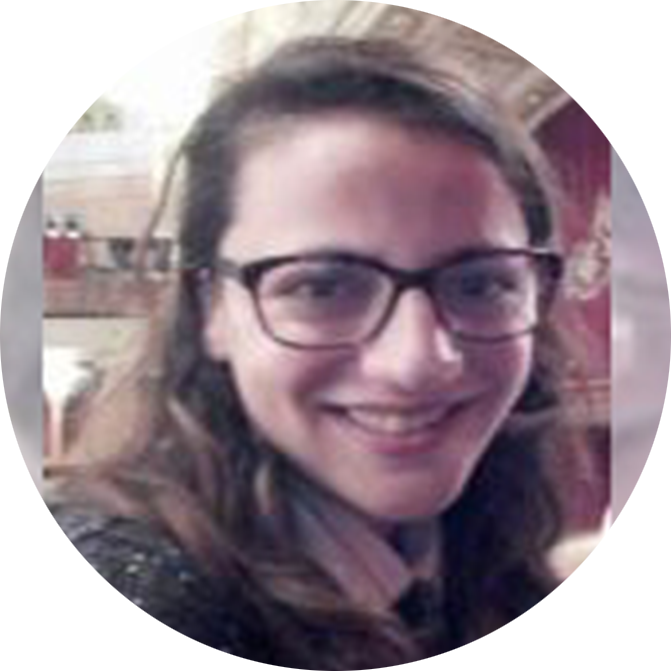
Dr Giulia Magazzù
(University of Chieti – Pescara, Italy)
Giulia Magazzù obtained a PhD in English Studies at the University of Rome Tor Vergata. She now works as Research Fellow at “Gabriele D’Annunzio” University of Chieti- Pescara, Italy, where she also teaches English linguistics and Translation at undergraduate level. Her areas of research are translation studies, audiovisual translation, ESP, critical discourse analysis. Among her publications are:
- Magazzù, G. (2018). The representation of immigrants in the Italian press: Exploring some examples of visual discrimination. InVerbis, 8(1), 187-204
- Magazzù G. (2019) “Dottore, dottore!” Subtitling dialects and regionalisms: the case of “Inspector Montalbano”. In Corrius M., Espasa E., Zabalbeascoa P. (eds) 2 Multilingualism and Audiovisual Translation”, Bern: Peter Lang.
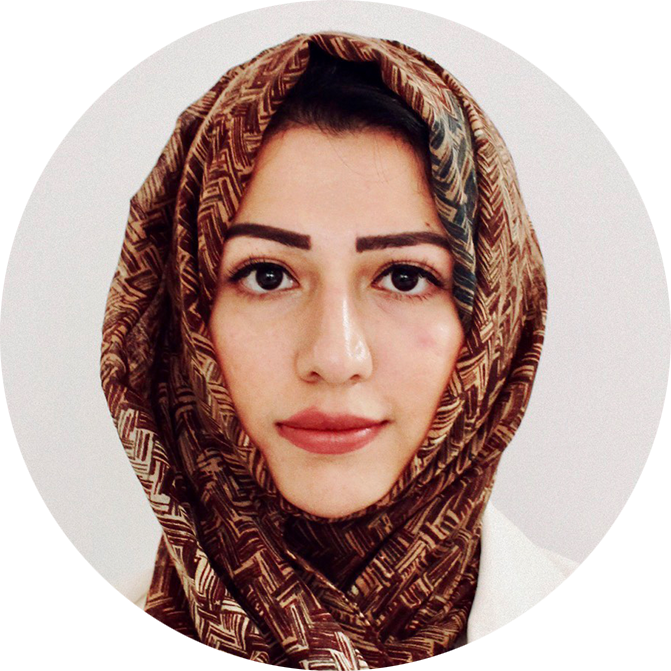
Dr. Kholoud M. Munshi
(Effat University, Saudi Arabia)
Kholoud M. Munshi is a coordinator at the Career Development Office and the Deanship of Student Affairs at Effat University, Saudi Arabia. She holds a Master in Translation and Interpreting from the American University of Sharjah (2015) and a PhD in Translation Studies from Western Sydney University (2023). She has worked as a translator at Effat University, Jeddah and participated as a consecutive interpreter at the Sharjah Book Fair, UAE. Her research interest is in community translation, communication and the use of new technologies in translation and interpretation services. Her PhD thesis was on the use of virtual reality as an innovative dissemination medium to improve the effectiveness of translation for pilgrims in Saudi Arabia.

Dr. Rovena Troqe
(University of Geneva, Switzerland)
Rovena Troqe is a research fellow at the University of the Free State (South Africa) and a lecturer at the University of Geneva (Switzerland). She has been studying the translation product and process from a generative semiotic perspective. She is the author of book Traduttologia e Semiotica Generativa. Per un nuovo approccio interdisciplinare (Translation studies and generative semiotics, a new interdisciplinary approach) and her work has appeared in Semiotica, TTR, Signata, The Translator and Actes Sémiotiques, among others. Her current research interests include applied translation studies, intercultural communication and community translation. She is currently working on a project entitled "Multilingual translation for fair, timely and reliable access in judicial settings", which aims to provide technological translation solutions in judicial settings in Geneva, in particular during accelerated proceedings.

Prof. Riccardo Moratto
(Shanghai International Studies University)
Prof. Dr. Riccardo Moratto, FCIL, 莫冉教授, (a.k.a. 韋佳德, 字 遠复) is Professor of Translation and Interpreting Studies, Chinese Translation and Interpreting at the Graduate Institute of Interpretation and Translation, Shanghai International Studies University, Chartered Linguist and Fellow Member of CIoL, editor-in-chief of Interpreting Studies for Shanghai Foreign Language Education Press (外教社), General Editor of Routledge Studies in East Asian Interpreting and General Editor of Routledge Interdisciplinary and Transcultural Approaches to Chinese Literature. Professor Moratto is also Honorary Guest Professor at the College of Foreign Studies, Nanjing Agricultural University, Cultore della Materia at Ca’ Foscari University of Venice, Honorary Research Fellow at the Center for Translation Studies of Guangdong University of Foreign Studies, and Expert Member of the Translators Association of China (TAC). Professor Moratto is an international conference interpreter and renowned literary translator. He has published extensively in the field of translation and interpreting studies and Chinese literature in translation.
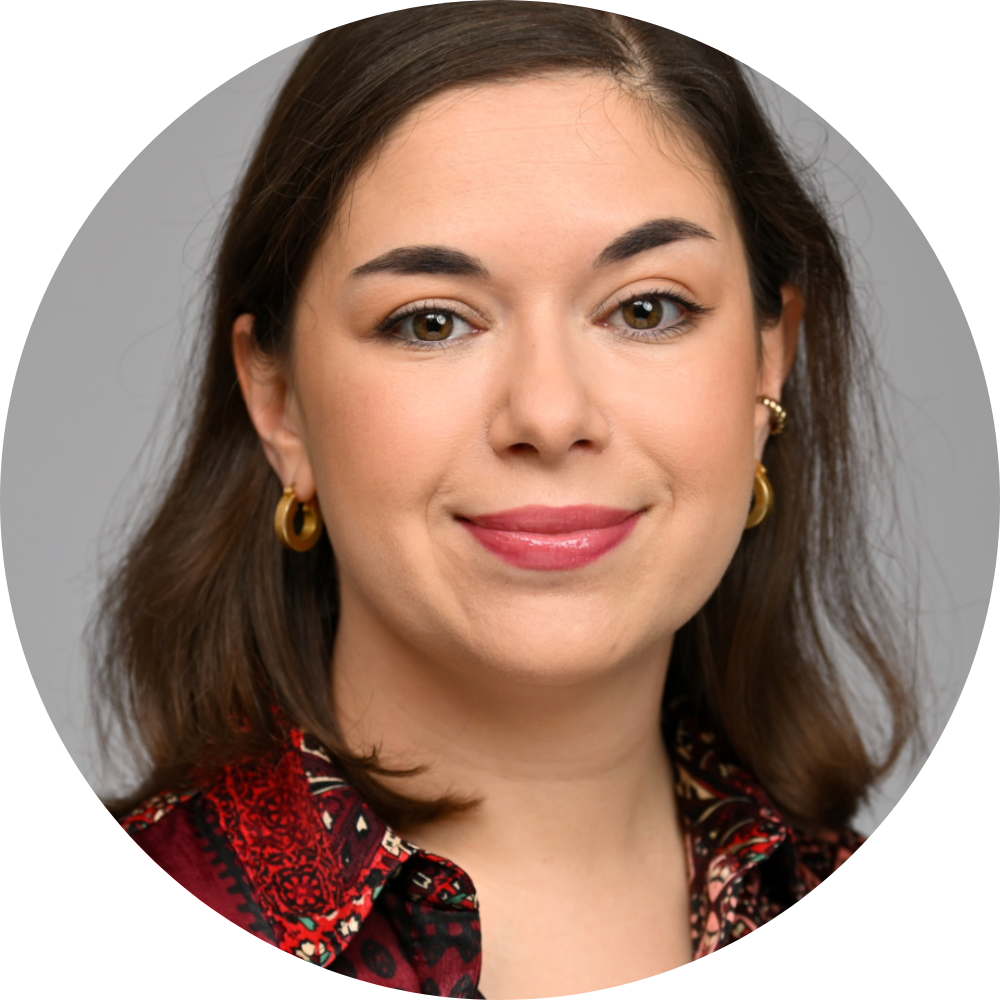
Dr. Monika Chwalczuk
(Polish Academy of Sciences)
After graduating summa cum laude from a Master’s Degree in Specialised Translation at the Institute of Applied Languages – University of Warsaw in 2016, Monika Chwalczuk received a PhD in Translation Studies from Université Paris Cité, where in 2021 she defended a dissertation on the role of co-speech gestures in public service interpreting analysed through the lens of multimodal corpora. In 2017-2022 she lectured at Université de Paris (France) and University of Warwick (UK) where she was affiliated respectively with the Department of Intercultural Studies and Applied Languages and the School of Modern Languages and Cultures. Monika Chwalczuk has joined the Institute of Psychology of the Polish Academy of Sciences in 2022 as a Primary Investigator on an interdisciplinary project examining the correlations between the use of gestures and the cognitive load in consecutive dialogue interpreting. The following are some of her publications:
• Chwalczuk, Monika and Benayoun, Jean-Michel (2022), Crise sanitaire et la réorganisation des activités de traduction: le cas d’une agence parisienne [Health crisis and the reorganization of translation activities: the case of a Parisian agency]. Fitispos International Journal, 9 (1), 268-286.
• Chwalczuk, Monika and Benayoun, Jean-Michel (2021). Le corps en interprétation. Dimension non verbale des discours interprétés [The body in interpreting : The non-verbal dimension of interpreted discourses], Traduire, 245, 11-26. https://doi.org/10.4000/traduire.2409 • Chwalczuk, M. (2019). When gestures speak louder than words: The role of gestures in community interpreting events. In I. Cobos López (Ed.), Estudios sobre traducción e interpretación: Especialización, didáctica y nuevas líneas de investigación. Tirant humanidades, 471-490.

Dr. Martina Caschera
(University of Bergamo, Italy)
Dr. Martina Caschera is an Assistant Professor of Chinese Literature at the University of Bergamo (Italy). She obtained her Ph.D. in Oriental and Southern Asia Studies from the University of Naples L’Orientale. Her main research areas are Cultural studies, Chinese media studies, and Translation studies, with a focus on multimodal translation. From 2019, she has been translating graphic novels from Chinese to Italian, and has been contributing to the popularization of Sinophone comics in the Italian market. To nurture a network of informed translators of multimodal texts, Dr. Caschera organized a course titled “Chinese comics and translation”, sponsored by the University of Bergamo and the Milan Confucius Institute, from May to June 2023.
Martina Caschera worked for five years as a cultural and linguistic mediator in Prato (2012-2017), Italy. During those years, she was in charge of translating the official documents of the Educational Services of the town and of providing mediation services for many institutional activities. She still goes back to Prato to serve the community, especially thanks to the specificities of her field of work/research area (visual and multimodal studies), which has proved to attract the attention and curiosity of youngsters, allowing them to share emotionally significant experiences.
Among the latest publication: “Note alla traduzione. Tradurre il post-scriptum di Seven: un dialogo tra testi, media e culture” [Translation notes. Translating Seven’s post-scriptum: a dialogue among texts, media and cultures], Intrecci 1, 2022, 62-64”; “Buttare sangue e le questioni traduttologiche in Splendidi reietti” [Buttare sangue. Translational issues in Splendidi reietti]. In Splendidi reietti, Torino: Add Editore, 2022, pp. 241-244”; “Transcultural, Transmedial Reinvention: Shuihu zhuan 水滸傳 from Chinese Classic to Italian Comic Art” in The Western Reinvention of Chinese Literature, 1910–2010 From Ezra Pound to Maxine Hong Kingston, edited by Zong-qi Cai e Stephen Roddy, Leiden: Brill, 2022, pp. 162- 194.
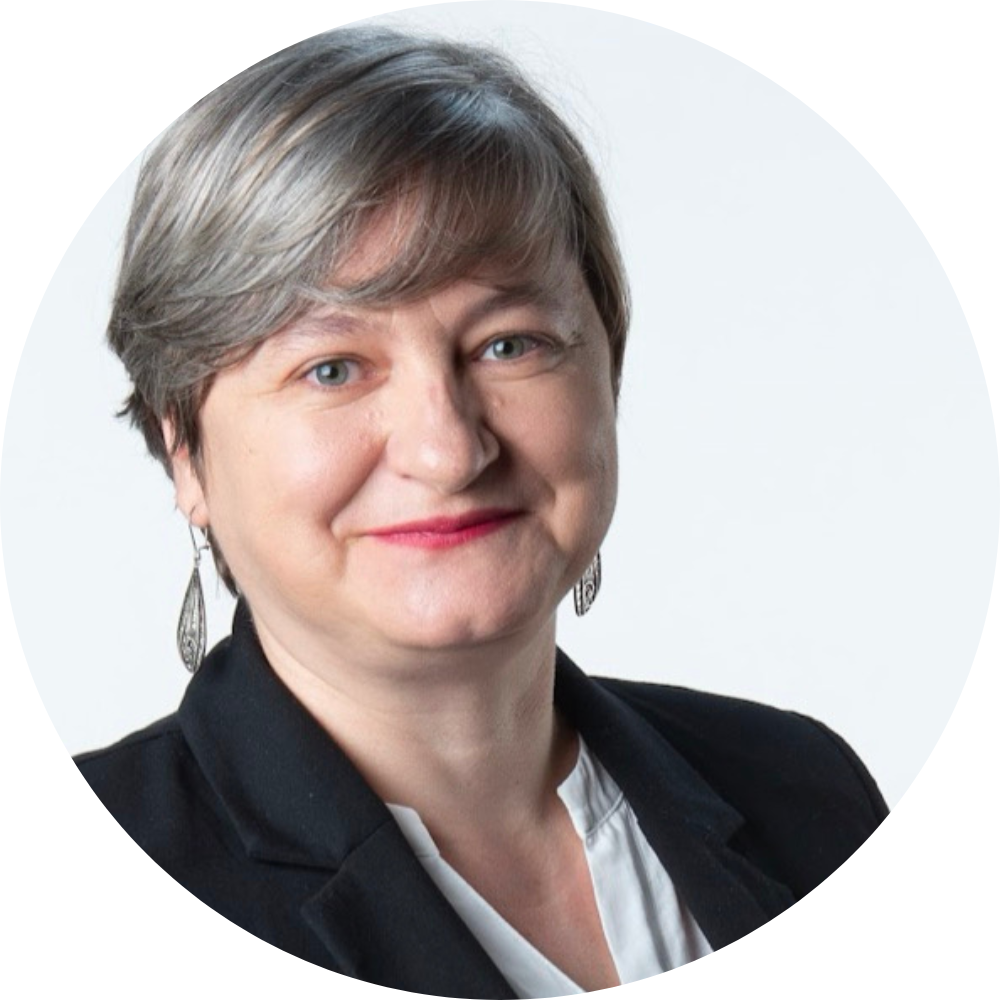
Dr. Marija Todorova
(Hong Kong Baptist University)
Marija Todorova holds a PhD in Translation Studies from the Hong Kong Baptist University, Department of English Language and Literature and a PhD in Peacebuilding and Development Studies from the Ss Cyril and Methodius University in Skopje, North Macedonia. Presently she is a Research Assistant Professor at the Hong Kong Baptist University, Department of Translation, Interpreting and Intercultural Studies. In her research, Dr Todorova is interested in the innovative integration of Translation Studies and Peacebuilding Studies by looking at the role of translation and interpreting in conflicts and post-conflict contexts, especially for refugees and asylum seekers. Dr Todorova has authored The Translation of Violence in Children’s Literature: Images from the Western Balkans (Routledge 2022). She has co-edited (with Lucía Ruiz Rosendo) two volumes: Interpreter Training in Conflict and Post-Conflict Scenarios (Routledge, 2023) and Interpreting Conflict: A Comparative Framework (Springer 2021). Her research has appeared in Translation and Interpreting Studies, The Translator, Linguistica Antverpiensia, Translation Spaces, Bookbird, Visual Studies, and numerous edited collections, including the Oxford Handbook of Translation and Social Practice (OUP 2021) and other volumes by publishers including Routledge, John Benjamins, Palgrave Macmillan, Bloomsbury and Leuven University Press. She is one of the editors of New Voices in Translation Studies and served as the guest editor (with Kobus Marais) of Linguistica Antverpiensia (2022) special issue on Translation and Inclusive Development. She is an Executive Council member of the International Association of Translation and Intercultural Studies (IATIS, 2011 – present) and Chair of the IATIS Social Media and Outreach Committee (2020 – present). Before joining academia, she worked as an interpreter and project manager for several international organizations, including OSCE, DfID, UNHCR, and UNDP. She serves as a part-time court interpreter for the Hong Kong Judiciary.

Dr. Marta Boltuc
(University of Rzeszow, Poland)
Marta Boltuc graduated from the University of Adam Mickiewicz in Poznan – Master of Arts in English and holds a Ph.D. in English Linguistics, University of Rzeszow, Poland. She has been working at the University of Rzeszow in the English Studies Department for many years. Her current position is Senior Lecturer in the Department of the Theory of Translation. Marta is also a practising translator and interpreter. She has been translating mainly business, legal and journalistic texts. She is currently involved in a project initiated by the municipal authorities of Rzeszow to prevent home violence, assisting as an interpreter. Her research interests are linguistics, pragmatics, analysis of mass media texts, theory and practice of translation, and mass media translation. She is the author of many articles, book chapters and books related to linguistics and translation. Some of her publications are:
- Lost in translation: Linguistic creativity in popular science texts as illustrated by National Geographic heads. University of Rzeszow Publishing House. 2016 (a monograph).
- Metaphors in the description of ‘bears’ and ‘eagles’ in National Geographic headlines: A historical perspective.’ Language, Literature and Culture in a Changing Transatlantic World II. Presov: Presov University. 2012. pp. 163-185.
- Visual and context-induced verbal metaphors in National Geographic headings and subheadings. Topics in Linguistics. Vol 10. December 2012. Nitra University. pp. 37-42.
- Stylistic devices and metaphorical creativity in popular science headlines in English and in Polish: A cognitive perspective. Cognitive Approaches to Specialist Languages. M. Grygiel (ed.). Cambridge Scholars: Cambridge. 2017. pp. 304-328.
- Semantics beyond language. Advances in Intelligent Systems and Computing volume 948. Biologically Inspired Cognitive Architectures 2019: Proceedings of the Tenth Annual Meeting of the BICA Society. Alexei Samsonovich (ed.). Germany: Springer. 2020. pp.36-47.
- Globalization, localization and national identity in translation. Translation Today: National Identity in Focus. ed. Michał Organ. Studies in Linguistics, Anglohpone Literatures and Cultures. vol.24. (eds) Robert Kiełtyka and Agnieszka Uberman. Peter Lang: Berlin 2020. pp. 69-78.
- Cultural adaptation, manipulation and creativity in translation. Acta Neophilologica. Wydawnictwo UWM Olsztyn Acta Neophilologica, XXIII (1), 2021. pp. 229-238.
- Power relations or language interference: Extraposed linking constructions in the Polish translation of The Economist, [in] Komunikacja międzykulturowa w świetle współczesnej translatologii. Język, teksty, interpretacje volume IX, Series: Między Słowami – Między Światami (eds) Ewa Kujawska-Lis, Anna Krawczyk-Łaskarzewska, Olga Latka-Spychała, Wydawnictwo Uniwersytetu Warmińsko-Mazurskiego: Olszyn. 2022, pp. 193-205.
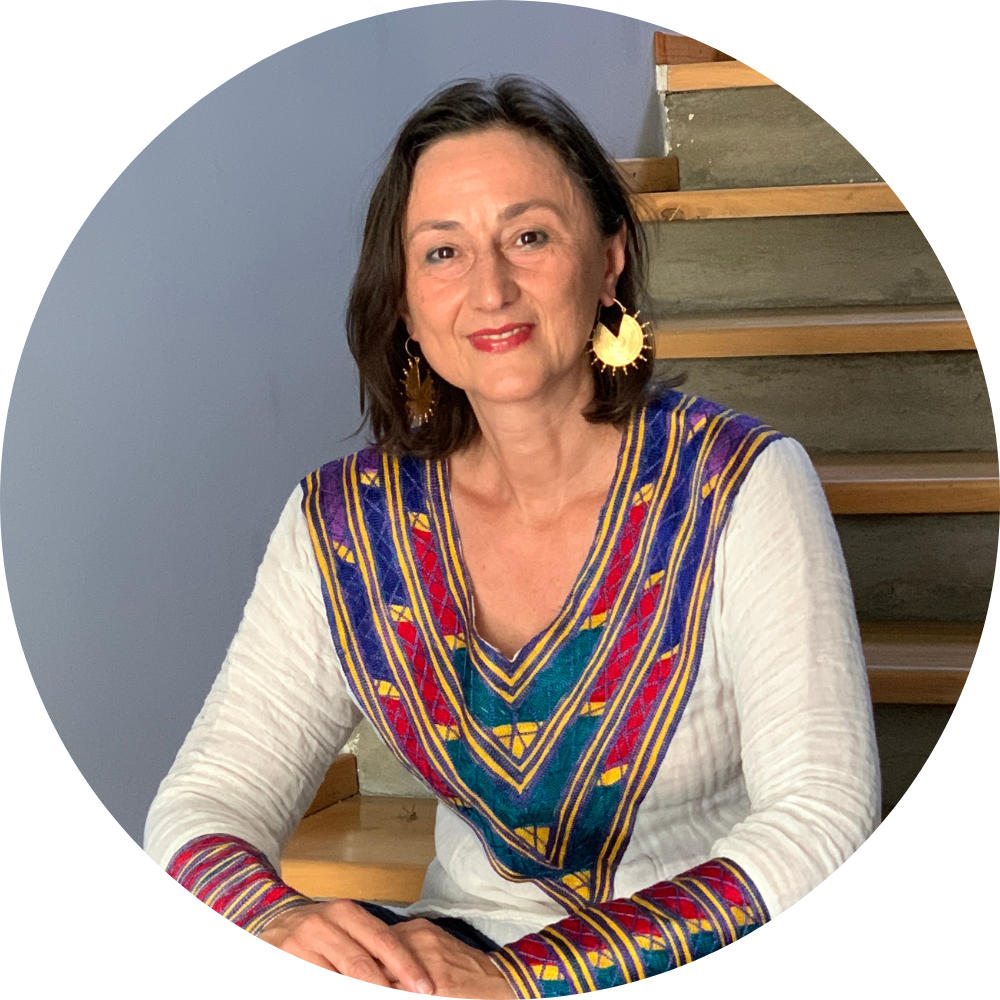
Prof. Tatjana Felberg
(Oslo Metropolitan University, Norway)
Tatjana Radanović Felberg works as professor of interpreting and intercultural studies in the Department of International Studies and Interpreting, at OsloMet – Oslo Metropolitan University in Oslo, Norway. Tatjana has had the privilege to pursue different career paths, such as those of a humanitarian worker, a public service employee, and an academic in higher education. The overlapping elements in these career paths have been connections between language, identity, and access to rights; intercultural communication in practice and research; and the promotion of education. Working in different educational systems, such as Tanzania, Mozambique, and Norway, working as an interpreter and as advisor in the Norwegian public sector, gave her valuable insights into the importance of education, languages, translation, and their connection to access to rights for all. She has contributed to development of BA in interpreting in public sector in Norway and enjoys teaching students at all levels. Tatjana has participated in and led several international and national research and development projects (some examples include EU project Training Newly Arrived Migrants for Community Interpreting and Intercultural Communication, bilateral project Intercultural Communication in Academic Settings in South Caucasus Countries, projects in Norway Healthcare interpreting in Learning and mastery courses; Remote interpreting and Quality assurance of translation in public sector in Norway). Some of her publications are:
- Felberg T. R. & Sagli, G. (2023). Training public service providers in how to communicate via interpreter. Gavioli, Laura; Wadensjö, Cecilia (Red.).The Routledge Handbook of Public Service Interpreting. Routledge.
- Felberg, T. R. (2022). Crisis Communiaction and Linguistic Diversity in Norway during the Covid-19 Pandemic: focus on Interpreting and Translation, FITISPos-International Journal (FITISPos-IJ). Vol. 9.
- Skaaden, H., Felberg, T. R. & Blazevic, B. (2022). COVID-19-Related Challenges in Consecutive Video-Mediated Interpreting. Glušac, Maja; Mikić Čolić, Ana (Red.). s. 27-41. Hrvatsko društvo za primijenjenu lingvistiku.
- Felberg, T. R. (2021). Somalis are best suited to inform Somalis: Crisis communication, linguistic diversity and social (in)equality during the initial stages of the Covid-19 pandemic as represented by the Norwegian Broadcasting Corporation (NRK). Journal of Language and Discrimination, 5(2), 90–17.
- Felberg, T. R. & Skaaden, H. (2020). A Blended Approach to Interpreter Education: Online and Onsite Learning Activities in Concert. Pokorn, Nike K.; Viezzi, Maurizio; Felberg, T. (Red.). Teacher Education for Community Interpreting and Intercultural Mediation: Selected Chapters. s. 112-135. Znanstvena založba Filozofske fakultete.
- Felberg, T. R. & Šarić, Lj. (2020). Chocolate, identity, and extreme speech online: An analysis of linguistic means in online comments in Croatia and Serbia. FLEKS - Scandinavian Journal of Intercultural Theory and Practice. Vol. 7.
- Felberg, T. R. (2016). Impoliteness -- a challenge to interpreters' professionalism. FLEKS - Scandinavian Journal of Intercultural Theory and Practice, 3(1), 1–20.

Dr. Miranda Lai
(RMIT University, Australia)
Dr Miranda Lai is a senior lecturer in interpreting and translating studies at the Royal Melbourne Institute of Technology (RMIT University). She completed a PhD in interpreter-mediated police interviews, looking into how interpreters facilitated or hampered such processes. Her research interests include public service translating and interpreting, police interpreting, forensic transcription and translation, and vicarious trauma of & self-care for translators and interpreters. She is widely published in translating and interpreting studies, and has delivered training in Australia and overseas. She is the co-author of two books: Police Investigative Interviews and Interpreting (2015) and Ethics for Police Translators and Interpreters (2017). She is also the lead editor for the 2023 volume of Educating Community Interpreters and Translators in Unprecedented Times, which documents how translating and interpreting educators around the world pivoted to meet the challenges brought by the COVID-19 pandemic. She was a dual recipient of the Research Excellence Award by the School of Global, Urban and Social Studies of RMIT in 2018, as well as the university-wide Award for Research Impact – Early Career Researcher (Enterprise), recognising her contributions in police interpreting, interpreters’ vicarious traumatisation, and Deaf interpreting.

Associate Prof. Melissa Wallace
(University of Texas at San Antonio, USA)
Melissa Wallace (she / her / ella) received her PhD in translation and interpreting studies (TIS) from the Universidad de Alicante, Spain. She is an Associate Professor at the University of Texas at San Antonio, where she directs the graduate certificate program in TIS. A certified court interpreter and certified healthcare interpreter, she is currently serving her second term as an appointed member of the Licensed Court Interpreter Advisory Board of the Judicial Branch Certification Commission for the Supreme Court of Texas. She was an active member of the Home for Trainers Webinars Work Group at the National Council on Interpreting in Health Care (NCIHC) from its inception until 2019, a work group that to date has produced over 50 high-quality train-the-trainer webinars led by leaders in the field of community interpreting. She is also a board member of the Society for the Study of Translation and Interpretation (SSTI), the non-profit educational and research foundation of the National Association of Judicial Interpreters and Translators (NAJIT), on which she has served since 2015. In 2016, Wallace carried out research on court interpreting certification models in Finland as the Fulbright-University of Tampere Scholar. Wallace locates her research and practice with an area focus of public service interpreting and translation (PSIT) and a topical focus of non-professional interpreting and translation (NPIT), interpreter testing and accreditation, and language access policy. Her disciplinary identity is one of commitment to policy, testing, professionalization, and bridging communities and disciplines. Her research program targets legal-inflected journals and conferences. Recent publications include:
- Wallace, Melissa. Forthcoming, July 2024. “LGBTQ+ forced migrants and the intersectional failure of language access in US detention centres.” In Maher, Brigid, Loredana Polezzi and Rita Wilson (eds.), The Routledge Handbook of Translation and Migration. Routledge.
- Martínez-Gómez, Aída and Melissa Wallace. Forthcoming, July 2024. “How do US-based legal interpreters use academic research? Expectations, practices, and potential for collaboration between academia and the profession.” JoSTrans: The Journal of Specialised Translation, issue 42.
- Wallace, Melissa. 2024. “Invisible researchers: Empowering practicing court interpreters to leverage and co-create scholarly inquiry.” In Monzó-Nebot, Esther and María Lomeña-Galiano (eds.), Critical Approaches to Institutional Translation and Interpreting. Challenging Epistemologies, pp. 167-189. Routledge. doi:10.4324/9781003350163-12
- Wallace, Melissa and Aída Martínez-Gómez. August 2023. “Everyday problem solving for US court interpreters and the role of research.” Translation & Interpreting, volume 15, issue 2, pp. 96-107.
- Monzó-Nebot, Esther, & Melissa Wallace. 2020. “New societies, new values, new demands: Mapping non-professional interpreting and translation, remapping translation and interpreting ethics.” Translation and Interpreting Studies, volume 15, issue 1, pp. 1-14. https://doi.org/10.1075/tis.00046.int
- Monzó-Nebot, Esther, & Melissa Wallace. 2020. “Research methods in public service interpreting and translation studies: Epistemologies of knowledge and ignorance.” FITISPos International Journal, volume 7, issue 1, pp. 15-30. https://doi.org/10.37536/FITISPos-IJ.2020.7.1.261
- Wallace, Melissa. 2020. “Quality, professionalization and certification in an integrated healthcare system: A case study of dual-role interpreters.” In Rafael Barranco-Droege (Ed.), Solving the riddle of interpreting quality: dimensions and challenges. Granada: Editorial Comares, pp. 87-112. ISBN: 978-84-9045-914-0
- Dam, Helle V.; Ahrens, Barbara; Nicodemus, Brenda; Richardson, Michael; Salaets, Heidi; and Melissa Wallace. 2020. “Interpreting research, practice, and training: Cross-fertilization or compartmentalization? A discussion about quality in interpreting.” In Rafael Barranco-Droege (ed.), Solving the riddle of interpreting quality: dimensions and challenges. Granada: Editorial Comares, pp. 187-212. ISBN: 978-84-9045-914-0